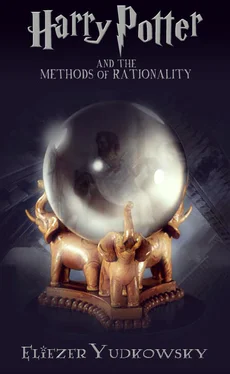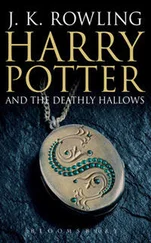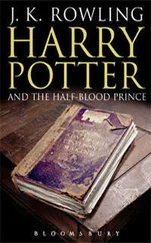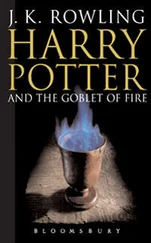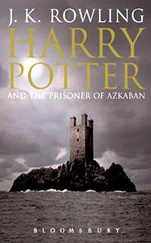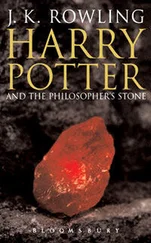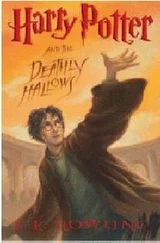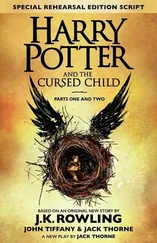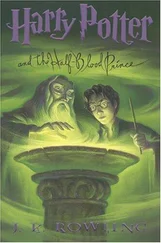Perenelle seems to have evoked, of showing any person who steps before it an illusion of a world in which one of their desires has been fulfilled. It is the sort of sensible precaution you can imagine someone building into a wish-granting creation meant to not go horribly wrong.”
“Wow,” Harry whispered, and meant it. This was Magic with a capital M, the sort of Magic that appeared in So You Want To Be A Wizard, not just a collection of random physics-violating things you could do with a wand.
Professor Quirrell gestured at the golden back. “The final property upon which most tales agree, is that whatever the unknown means of commanding the Mirror—of that Key there are no plausible accounts— the Mirror’s instructions cannot be shaped to react to individual people. So it is not possible for Perenelle to command this Mirror, ‘only give the
Stone to Perenelle’. Dumbledore cannot state, ‘Only give the Stone to one who wishes to give it to Nicholas Flamel’. There is in the Mirror a blindness such as philosophers have attributed to ideal justice; it must treat all who come before it by the same rule, whatever rule may be in force. Thus, there must be some rule for reaching the Stone’s hiding-place which anyone can invoke. And now you see why you , called the Boy-Who-Lived, shall implement whatever strategies the two of us devise. For it was said that this thing possesses a moral orientation, and it may have been given commands reflecting the same. I am well aware that on conventional terms you are said to be Good, just as I am said to be Evil.” Professor Quirrell smiled, rather darkly. “So as our first attempt—though not our last, rest assured-let us see what this Mirror makes of your attempt to retrieve the Stone in order to save the life of Hermione Granger and hundreds of your fellow students.”
“And the first version of that plan,” said Harry, who was beginning to finally understand, “the one you invented on Friday in my first week of Hogwarts, called for the Stone to be retrieved by Dumbledore’s golden child, the Boy-Who-Lived, making a selfless and noble attempt to save the life of his dying Defense teacher, Professor Quirrell.” “Of course,” said Professor Quirrell.
It was a poetical sort of plot, Harry supposed, but his appreciation of that elegance was being hampered by the surrounding circumstances.
Then another thought occurred to Harry.
“Um,” Harry said. “You think that this Mirror is a trap for you—”
“There is no way beneath the heavens that it is not meant as a trap.”
“That is to say, it’s a trap for Lord Voldemort. Only it can’t be a trap for him personally. There has to be a general rule that underlies it, some generalizable quality of Lord Voldemort that triggers it.” Without conscious awareness, Harry was frowning hard at the Mirror’s golden back.
“As you say,” said Professor Quirrell, who was beginning to frown at Harry’s frowning.
“Well, on the first Thursday of this year, the mad Headmaster Dumbledore, who I’d just seen incinerate a chicken, told me that I had no chance whatsoever of getting into his forbidden corridor, since I didn’t know the spell Alohomora. ”
“I see, ” said Professor Quirrell. “Oh, dear. I wish you had thought to mention this to me a good deal earlier.”
Neither of them needed to state aloud the obvious, that this bit of reverse reverse psychology had successfully ensured that Harry would stay the heck away from Dumbledore’s forbidden corridor.
Harry was still concentrating. “Do you think Dumbledore suspects that I am, in his terms, a horcrux of Lord Voldemort, or more generally, that some aspects of my personality were copied off Lord Voldemort?” Even as Harry asked this aloud, he realized what a dumb question it was, and how much completely blatant evidence he’d already seen that—
“Dumbledore cannot possibly have missed it,” said Professor Quirrell. “It is not exactly subtle. What else is Dumbledore to think, that you are an actor in a play whose stupid author has never met a real eleven-yearold? Only a gibbering dullard would believe that—ah, never mind.” The two of them stared at the Mirror in silence.
Finally Professor Quirrell sighed. “I have outwitted myself, I fear. Neither you nor I dare be reflected in this Mirror. I suppose I must command Professor Sprout to undo my Obliviations of Mr. Nott and Miss Greengrass… You see, the other great difficulty of the Mirror is that the rule by which it treats those reflected will disregard external forces, such as False Memories or a Confundus Charm. The Mirror reflects only those forces arising from within the person themselves, the states of mind they arrive at through their own choices; so it is said in several places. That is why I had Mr. Nott and Miss Greengrass, believing different stories about why the Stone’s extraction was necessary, ready to appear before this Mirror.” Professor Quirrell rubbed at the bridge of his nose. “I constructed other stories for other students, ready for me to set into motion with the chosen trigger… but as this day approached, I began to feel pessimistic about the project. Such as Nott and Greengrass still seem worth trying, if we cannot think of something better. But I wonder if Dumbledore has tried to construct this puzzle to specifically resist Voldemort’s cunning. I wonder if he might have succeeded. If you devise an alternative plan which I approve enough to try, I promisse that whatever pawn I ssend forth sshall not be harmed by me, then or ever; nor do I expect to break that promisse . And I remind you again of the hostages I hold to my failure, both Miss Granger and all the others.”
Again they stared at the mirror in silence, the elder Tom Riddle and the younger.
“I suspect, Professor,” Harry said after a time, “that your entire class of hypotheses about somebody needing to want the Stone for good or honest purposes is mistaken. The Headmaster wouldn’t set a retrieval rule like that.”
“Why?”
“Because Dumbledore knows how easy it is to end up believing that you’re doing the right thing when you’re actually not. It’d be the first possibility he imagined.”
“ Iss it truth or trickery that I hear? ” “ Am being honesst, ” Harry said.
Professor Quirrell nodded. “Then your point is well taken.”
“I’m not sure why you think this puzzle is solvable,” Harry said. “Just set a rule like, your left hand must hold a small blue pyramid and two large red pyramids, and your right hand must be squeezing mayonnaise onto a hamster—”
“No,” Professor Quirrell said. “No, I think not. The legends are unclear on what rules can be given, but I think it must have something to do with the Mirror’s original intended use—it must have something to do with the deep desires and wishes arising from within the person. Squeezing mayonnaise onto a hamster will not qualify as that, for most people.” “Huh,” Harry said. “Maybe the rule is that the person has to not want to use the Stone at all—no, that’s too easy, the story you gave Mr. Nott solves it.”
“In some ways you may understand Dumbledore better than I,” said Professor Quirrell. “So now I ask you this: how would Dumbledore use his notion of the acceptance of death to guard this Stone? For that above all he thinks I cannot comprehend, and he is not far wrong.”
Harry thought about this for a while, considering several ideas and discarding them. And then, having thought of something, Harry considered remaining silent… before mapping out the obvious part of the future conversation where Professor Quirrell asked him to say in Parseltongue if he’d thought of something.
Reluctantly, Harry spoke. “Would Dumbledore think that this Mirror could reach the afterlife? Could he put the Stone into something that he thinks is an afterlife, so that only people who believe in an afterlife can see it?”
Читать дальше
